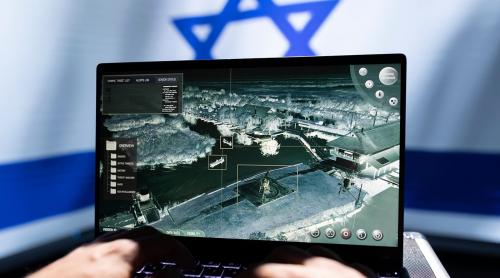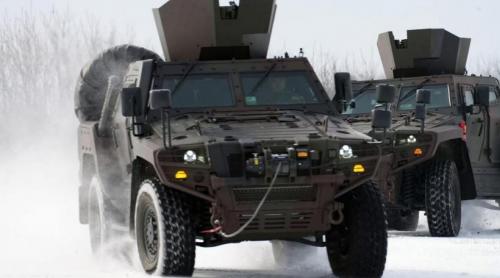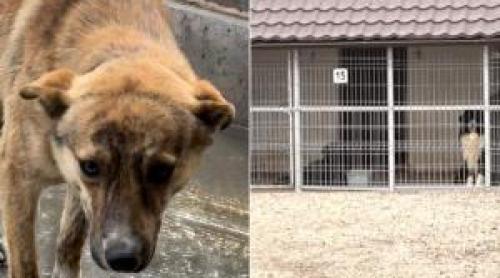Source and Destination for Criminal Acts
The highly disputed Strategy for Romaniaâs National Security has been made
public by the Presidential Administration yesterday, at the demand of the media, the civil society and of several political parties.
The main risks and threats that can endanger Romaniaâs national security, its values and interests as a member of the European and Euro-Atlantic community are as follows:
INTERNATIONAL TERRORISM. The terrorist attacks on September 11 against symbols of the American power and civilization, the similar actions in Madrid, London or Istanbul as well as the ones in the Near East, in Africa, Central, Southern and South-Eastern Asia prove the fact that international terrorism that is based on religious issues, organized in structures with no borders, is the greatest threat to peopleâs life and freedom, to democracy and the other fundamental values at the base of the Euro-Atlantic community. (â¦)
MASS DESTRUCTION WEAPONS. Nuclear, chemical, biological and radiological weapons are another serious threat from the viewpoint of the destruction potential. Access to this kind of means gets easier and easier from the technological point of view, and the temptation of their possession is higher and higher, as well as the diminution of the guarantees of responsible behavior of the authorities that get to possess them, especially in the
case of the regimes based on political ideologies or on extremist religious ideologies. (â¦)
REGIONAL CONFLICTS. Despite the positive evolutions in the past one-and-a-half decade, which made Europe a safer and more flourishing place, the strategic area in which Romania is situated still faces a lot of local conflicts, inside or between states, with important meanings for the regional and European peace and security. The interethnic or religious conflicts, which have an important political background, are an auxiliary product of the more or less violent disruption of certain multinational states in the region and an extreme threat to the regional security even if, after some important efforts of the national community, most of them are kept under control. By their high number, the so-called "frozen conflicts" in this region, together with other tensioned statuses, territorial disputes, separatist tendencies and instable situations present in the strategic proximity of Romania, generate strategic incertitude, determines the waste of many resources and perpetuates poverty. In the same time, they are the source of other kind of violence and criminality and favors terrorism.
TRANSNATIONAL ORGANIZED CRIME. It is an expression of the proliferation of several negative phenomena that get greater in the terms of globalization, as well as a direct consequence of inefficient management of the political, economical and profound social changes that happened in the Central and Eastern Europe in the process of the disappearance of the communist regimes. Due to such situations, the space of strategic interest in which Romania is the source, the transit area and the destination of certain serious criminal activities like: illegal guns dealing, ammunition and explosives dealing, drug dealing, white slavery, dealing of pseudo products, money laundry and other aspects of economical-financial criminality. (â¦)
INEFFICIENT GOVERNMENT. An important role in the process of the consolidation of the stability and security of the new democracies in the Central, South-Eastern and Eastern Europe is given to the statesâ and societiesâ capacity of promoting an efficient management of the public duties, of guaranteeing the responsible and efficient use of the power, in full agreement with the principles of democracy and with the human rights. The public expression of these requests is a good Government, an area where Romania, as well as most of the other states in this region, has recorded important progresses during the years that have passed from the Revolution. However, in the same time, the new democracies in this region continue to confront with numerous negative phenomena that affect the quality of the governing activity. In the same context, inefficient governing, affected by the institutional corruption and political clientele, by the inefficiency of the public administration, the lack of transparency and public responsibility, by excessive bureaucracy or by authoritarian tendencies, undermines the trust of the citizens in the public institutions and might be a major threat to statesâ security.
FIGHT AGAINST TERRORISM IN WILL COALITIONS. International terrorism caused by extreme religious issues, organized in structures with no boundaries, which appear as supporters of a totalitarian and absurd ideology, is the most serious threat to the security of the democratic nations of the world, to the human civilization as a whole. No country in the world can consider itself out of the way of this danger and no democratic state can neglect its responsibilities as a member of the international community. Terrorism cannot be ignored, cannot be tolerated and can be defeated only by collective solidarity. Neutrality in the global war against terrorism is not possible and standoff from the efforts of the democratic states regarding the eradication of terrorism does not represent the guarantee of security. In order to fight against this pest, Romania will take action as often as necessary as a member of NATO, the EU or other international organizations that have the same goals, with the purpose of accomplishing unity and concentration of the main efforts for common or complementary actions. The actions will target especially the promotion and consolidation of democracy, the supporting of the governments and of the institutions for the security and defense against terrorism, participation to multinational activities, and complex assistance in the process of the after-conflict reconstruction. When reaching consensus regarding such actions is not necessary or possible, in the virtue of its profound democratic beliefs, of its vital interests and of the responsible evaluations regarding the nature, the imminence and the degree of the danger, Romania will take action as member of will coalitions, based on rational political decisions, which take into account the constitutional terms and on the obligations that come from the cooperation agreements with the allied, partner or friend nations, in accordance to the principle of the right to individual and collective defense.
CORRUPTION. Identifying corruption as a risk factor for the national security, right from the beginning of the activity of the present administration, created conditions for the release of a complex program for the eradication of systemic corruption, which regards political, juridical, and administrative power, for development of the civic spirit and the effective involvement of the society in the fight against this phenomenon. (â¦) The main result of this effort is represented by the substantial diminution and putting under control of the phenomenon, by the creation of the adequate mechanisms, the beginning of certain mentality changes of the population and a process for the change of the public perception. (â¦)
The institutional politics and actions for the fight against corruption are viable and sustainable only in the conditions of the efficient collaboration between the Parliament, the President, the Government, and the Justice, of the active involvement in this effort of the private sector, of the non-governmental organizations, of the media and the civil society, having as a purpose the creation of a national system for moral integration based on the convergent action of all the political, administrative and social forces for the fight against this pest. Actually, it is compulsory that the institutions would function, collaborate and integrate in a system in which information flows, responsibilities are clear and donât superpose, and the attributions are fulfilled legally, in time and with maximum efficiency.
Translated by SORIN BALAN



















